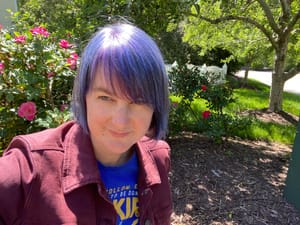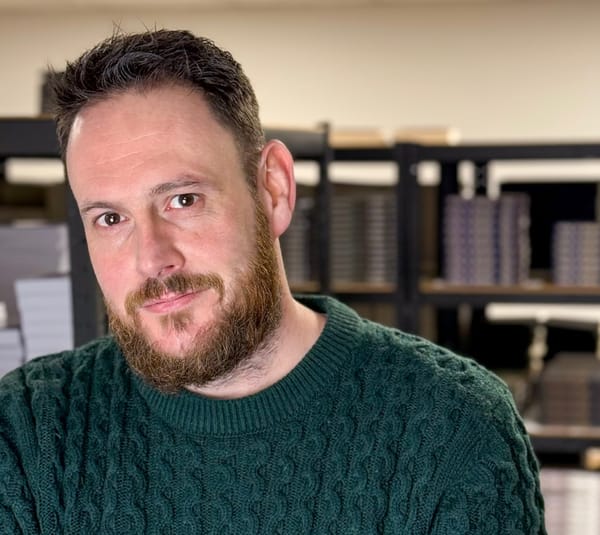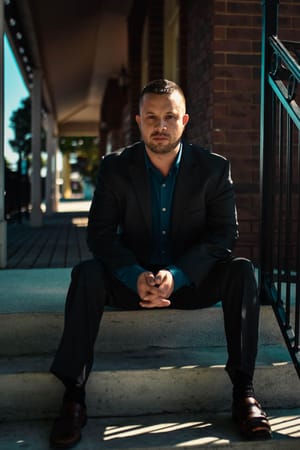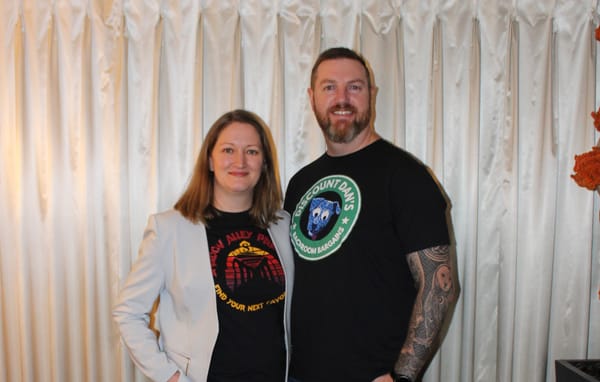Jonathan Yañez on Writing into the Dark and Taking the Next Step
Jenn Lessmann
Jonathan Yañez doesn’t have an outline. Some authors talk about writing by the Headlight Method, plotting only as far down the road as their headlights will shine. For Jonathan, assuming that the lights are on might give him too much credit—by his own account. The internationally bestselling author, filmmaker, and entrepreneur will admit to having “a general sense of an idea of where I want the story to go—maybe four or five points.” But for the most part, when he starts writing or takes on a new project, the path forward is about as clear as it was the day he quit his job in 2012.
“All I could see was the next step ahead of me,” he says. With no backup plan, and without discussing it with his wife first, Jonathan walked away from a sales and marketing position he’d held for five years and became a full-time writer. “My whole career has been a lot of faith—just blind faith—and taking that next step and hoping and praying that that step is going to be there when I land.”
The risks have more than paid off.
Unsure of anything beyond the fact that he hated his job and couldn’t see a healthy future there, Jonathan shifted into a new career as an author. He took a part-time position as a personal trainer to help pay the bills and immediately started doing what he loved: writing. Eight months later, he had a completed manuscript and eighty query rejections. The next query letter resulted in an agent and a traditional publishing deal for a series of books based on his debut novel, a Young Adult Urban Fantasy called The Beast Within.
By 2014, he’d published five books traditionally and two independently. When he saw the success of his independent novels and the difference in net royalties, he left his publisher.
Jonathan has no complaints about his traditional publishing experience, and indeed, he may soon return to traditional publishing as a hybrid author. But “I saw what they were doing, and I understood that I was capable of doing the same thing,” he says.
Charting a Path
Jonathan says he soon realized the quickest way to build an audience was to put out as much content as he could as soon as he could. So he built a routine that allowed him to publish eight to twelve books per year. He does most of his writing in sprints: one thousand words in twenty to thirty minutes, four times a day, six days a week, resulting in about eighty thousand finished words per month. When he sits down to work, he says, “I already know exactly what I’m going to write. I’ve been thinking about it. I’ve been dreaming about it.” But his dreams still only go as far as what he intends to write the next day.
The routine has shifted a little as his family and business have grown. Jonathan and his wife, Jynafer, now have two small children, and the Yañez brand has expanded. Jynafer followed Jonathan’s lead, leaving her job in marketing to take over running the family business. He calls her “the CEO,” and she refers to him as “the Talent.” They split the responsibilities of their business with those of raising their two children. According to Jonathan, on a typical day, “I wake up at 5 a.m., and I write until 1 p.m. We homeschool our kids, so from five to one, my wife is with the kids, and then in the afternoons, it’s her time to work. So I’m with the kids from one until about four or five. Then we have family time until about seven, when the kids go to bed. So from eight to nine, my wife and I get to spend time together.” He’s in bed by 9 p.m.
Although this schedule made him a successful author, once he got comfortable with the business of writing and selling books, Jonathan started looking for new ways to grow. He says that he always wants to be “grateful for everything but hungry for more.” To that end, Jonathan approaches his life the same way he writes his books: with just a few mile markers in sight. He writes a list of five things he wants to accomplish “some day.” Each year he consults the list, checks off the goals that have been met, and adds new ones. He says that in the beginning of his career, he could never have imagined some of the things that he’s accomplished, but by challenging himself this way, he forces himself to grow. “If that seems impossible, if we want to dream bigger, we should do that,” he says of choosing goals that seem just out of reach.
Changing Directions
After finding success in independent publishing, Jonathan’s next step into the darkness led to visions of marquee lights. About three years ago, while researching successful authors who’d transitioned to different media, Jonathan discovered that Michael Crichton once had the number one bestselling book, number one movie, and number one TV show in the same year.
According to Vanity Fair, Crichton has held this distinction multiple times, and his author website asserts that he’s the only one to have done so.
Jonathan started looking into the filmmaking process and started networking to build connections within the industry. For his first project, he wrote and produced a pilot episode for an original Space Western television show. His production company started work in January 2021, launched a Kickstarter in October 2021—which fully funded in nine days—filmed over five days in January 2022, and premiered in June 2022. The project, Infinity System, wracked up over one hundred thousand views on YouTube, won film festival awards, and earned the attention of both a literary agent and an entertainment lawyer. Jonathan has since completed a short book series based on the pilot, which he hopes to publish traditionally and then option for film.
Fans of his independently published Forsaken Mercenary book series, many of whom backed the Infinity System project, turned out again when Jonathan set up his second Kickstarter. This time, he wanted to bring his already bestselling book to the big screen. Offering perks like set visits, red carpet events, signed posters, and challenge coins, the Forsaken Mercenary film funded in twenty-nine hours.
Jonathan observes that the writing process for film is easier than for books, though he continues to publish four to six books a year between new projects. Since scripts are significantly shorter, he’s found the transition in style and format to be mostly a matter of research and practice. “The easiest way for me to learn a different skill set is just to do it—to practice it and do it over and over and over again,” he says.
Likewise, Jynafer has taken on new roles, co-producing both films and directing Forsaken Mercenary. She also organizes signings and arranges meet-ups with their reader community, the Wolf Pack. “I just want to be sure that I take all of these readers and people who have supported me throughout the years along with me on this journey,” Jonathan says. That means checking in with their Facebook group, hosting Facebook Lives, and responding to readers’ requests. Jonathan proudly wears the Wolf Pack logo in interviews and has made sure to incorporate reader feedback when developing new products.
Lighting the Way Forward
As for what comes next, Jonathan shared one of the big goals on his checklist: owning his own studio. He looks forward to having more control of his own projects, a sentiment that drew him to indie publishing in the first place. He’ll continue to publish stories of redemption and hope, now as a hybrid author and filmmaker, and see where the next step takes him. Although Jonathan hasn’t put a plan in place to match Crichton’s accomplishment—it’s too far down the road, he says—he advises other authors to “dream bigger sooner,” and says he “would encourage them not to put a limit on themself.
“Whatever you decide to do, just make sure you love it and then work to be the best at it. That’s it,” he says.
Sometimes the next step is hard to see, but he pushes forward anyway. “The number one rule is not to give up,” he says. “If God’s taught me anything, it’s just: don’t give up. Even on the days that you feel your worst, even if you can just get back up, that’s enough on those days. As long as you don’t give up, you will get there.”
Jenn Lessmann











